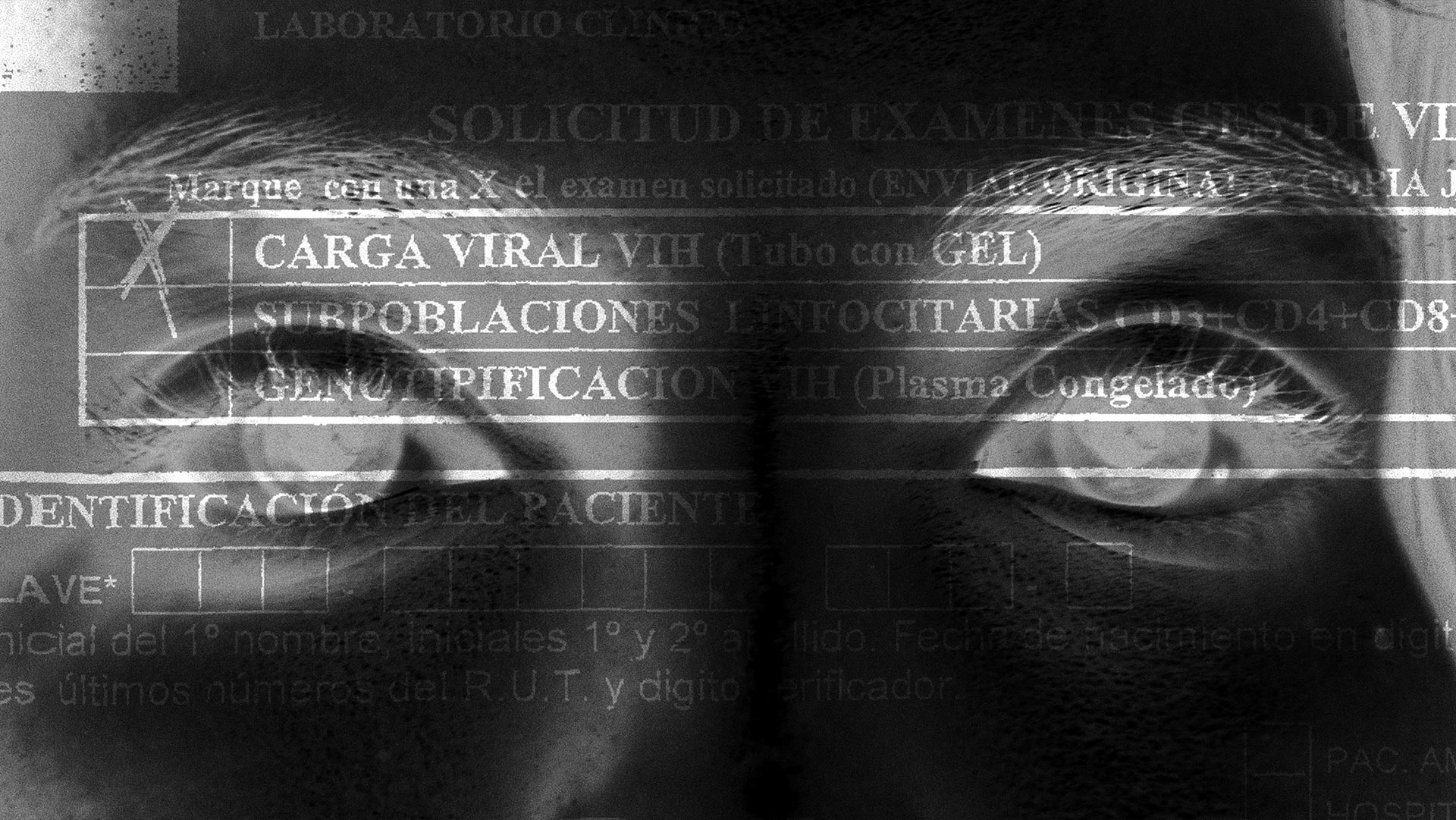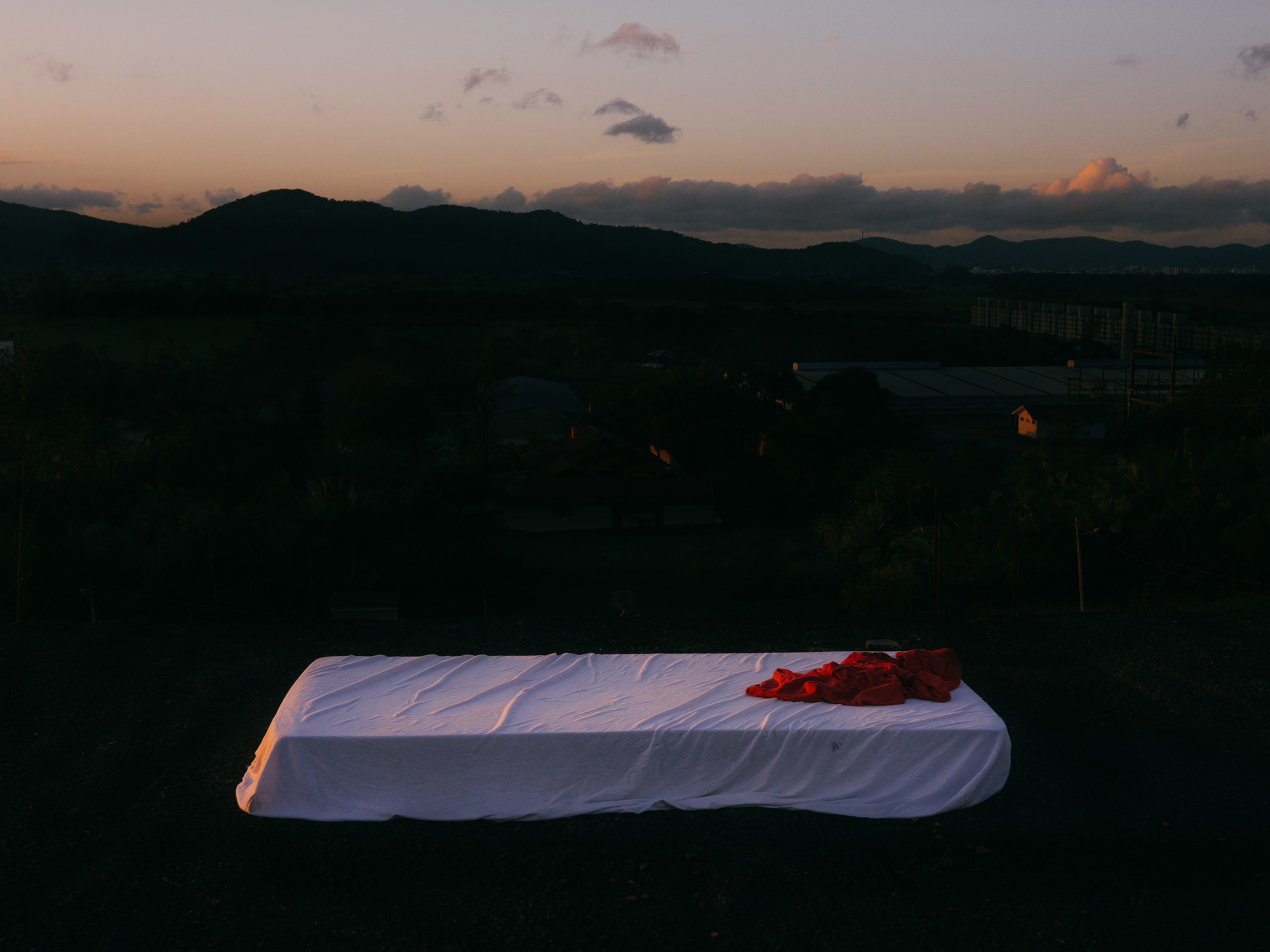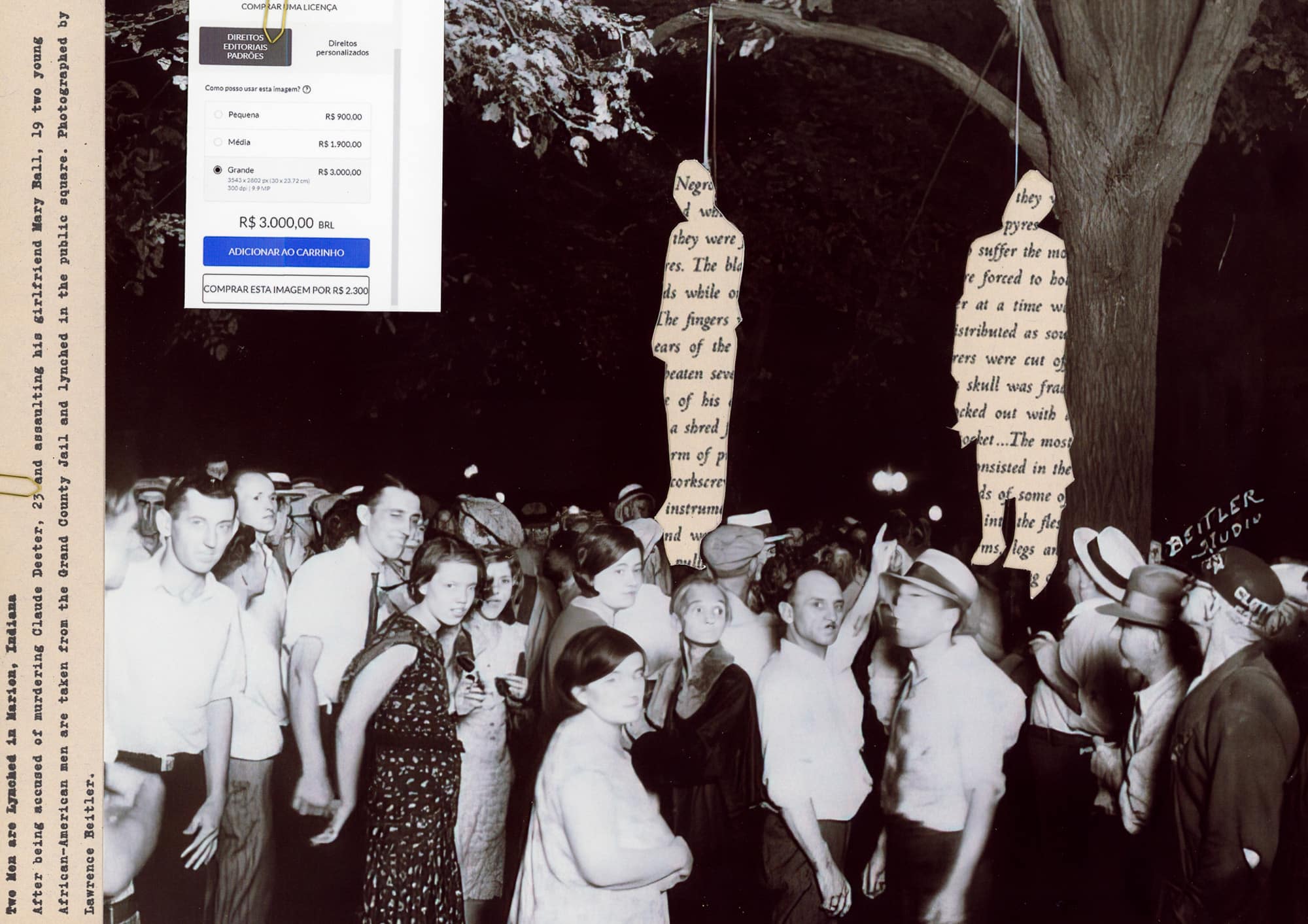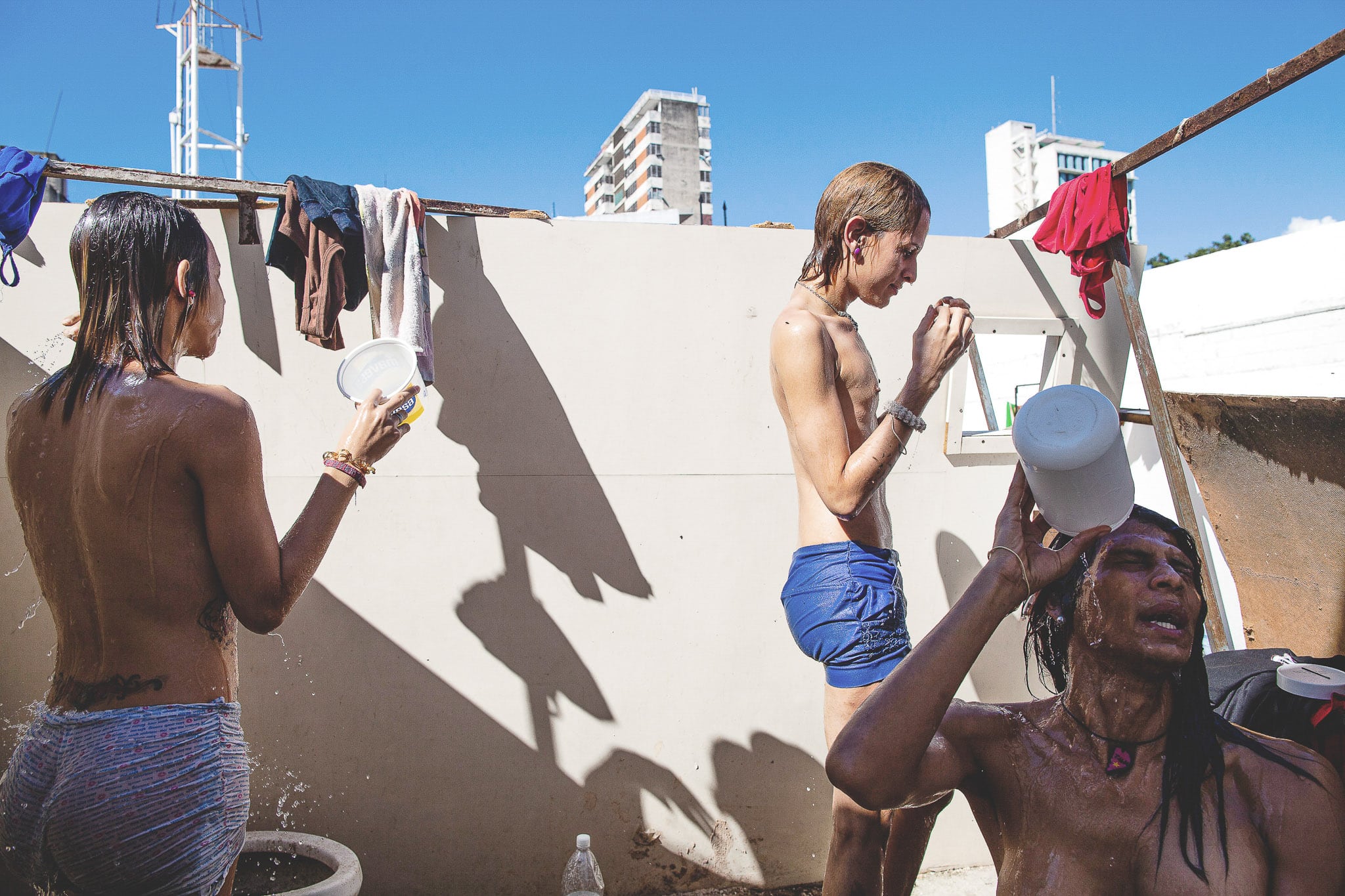
The Eternal Days of Imprisoned Women
Ana María Arévalo Gosen believes that photography has the power to be transformative. But for that, you have to organize yourself: “It’s not just doing the story, you have to think about what you’re going to do to make it have an impact,” she reflects.
She is Venezuelan, moved to France in 2009, and returned years later for a wedding. “There is a time when you want to go home,” she says. At that event, someone talked to her about the poor conditions of the preventive prison. Thus was born Días eternos. The project began in El Salvador, continued in Venezuela, and will continue in a destination that she has not yet revealed.
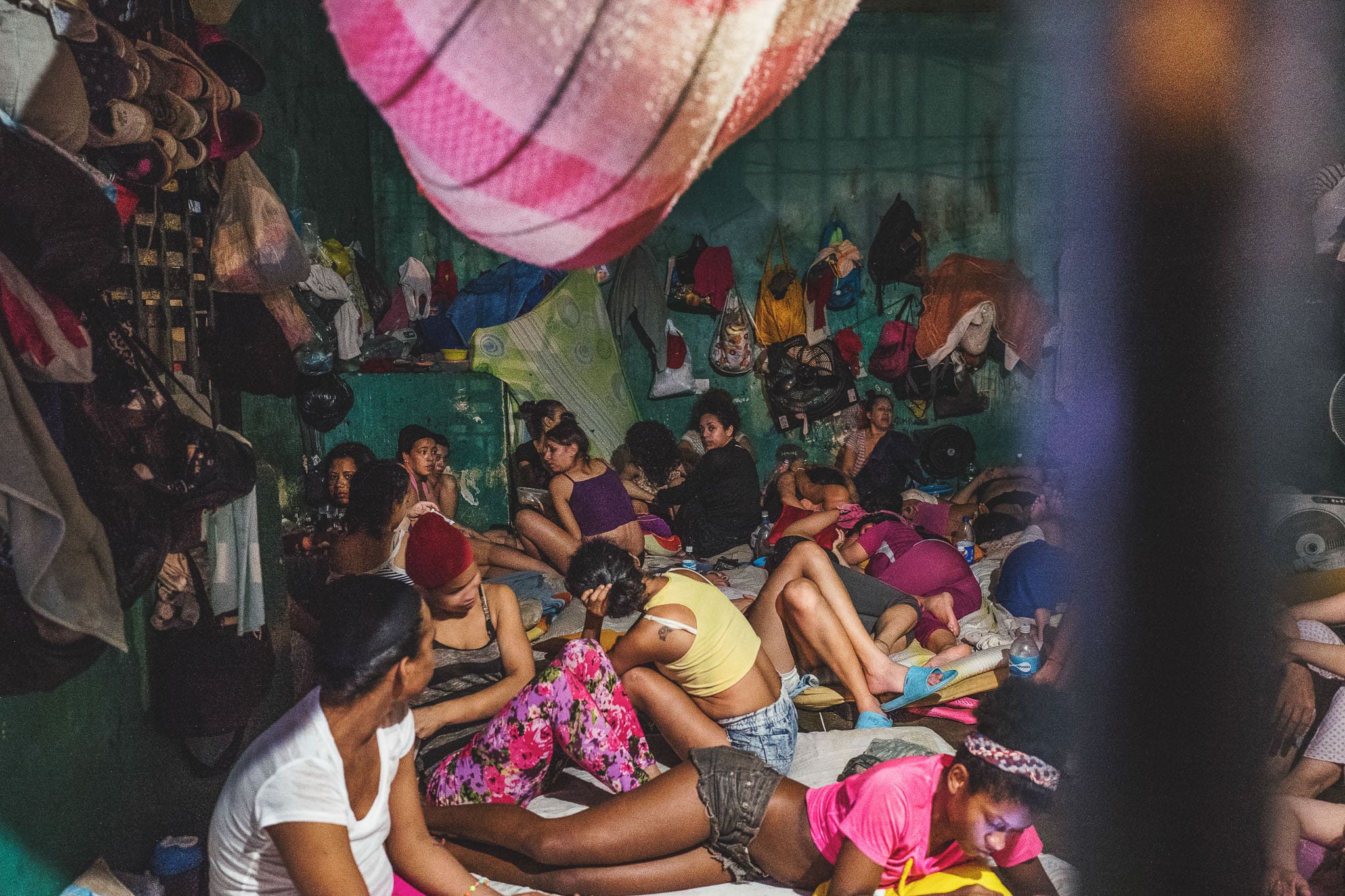
Ana María Arevalo Gosen
How do you define yourself?
I consider myself a visual storyteller or documentary photographer focused on women’s rights. I use photography as an instrument, a weapon. I am interested in environmental issues, and my heart is in Latin America. To be a visual storyteller is to tell the story in a slow, slow way, with dedication, to delve into people’s lives. It is about getting the viewer to stand on the person’s feet. It is important to create bonds, make it collaborative.
Días eternos is about a poetic and real transformation. For that, you have to get together, even if it is not as fun as being in the field. But, aha! I have the photo, so what? I won two scholarships, so what? You know that you are photographing highly vulnerable people, you can’t just stay with that.
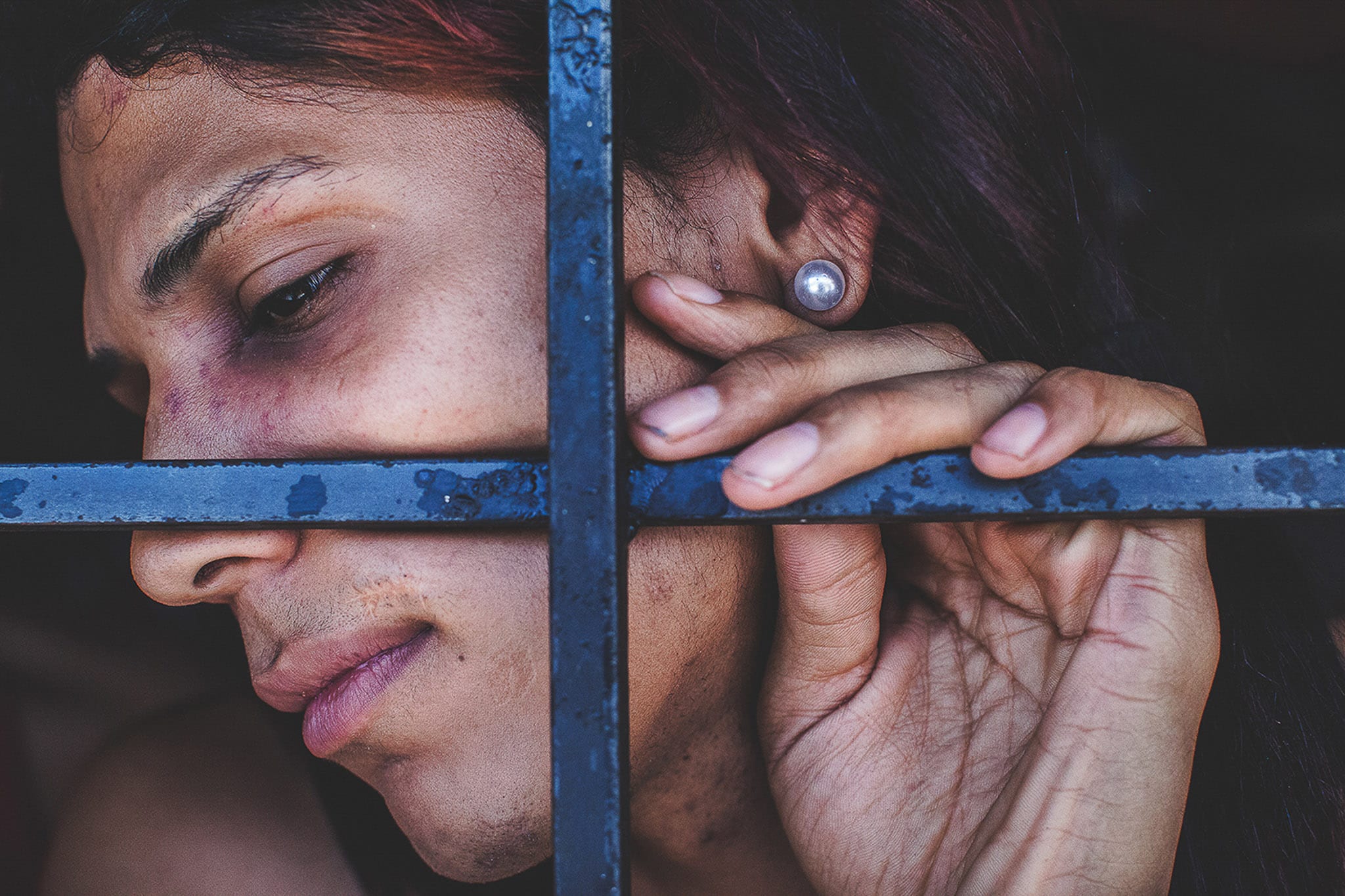
Ana María Arevalo Gosen
How do you build a bond with women?
The first time I went to the detention center, in 2017, I noticed that it was a horrible place. They had no water, they did not know their lawyers, they came from very low social strata. In a country with a crisis, having your relative imprisoned may mean that you, who are free, have no food to eat.
When I go in, I don’t take the camera out because sometimes it produces distance. I explain who I am, I tell my story. I keep a record of their names, how old they are, why they are imprisoned, whatever they want to tell. I ask them when was the last time they ate if they share meals. Then I ask if it bothers them that I make a photographic record with them. I try to get the guards to leave.
I do not mean that they are criminals, but do they deserve to be in a dark place without food, without water? Or should they be having rehabilitation, activities, moving the body, living as a worthy human being?
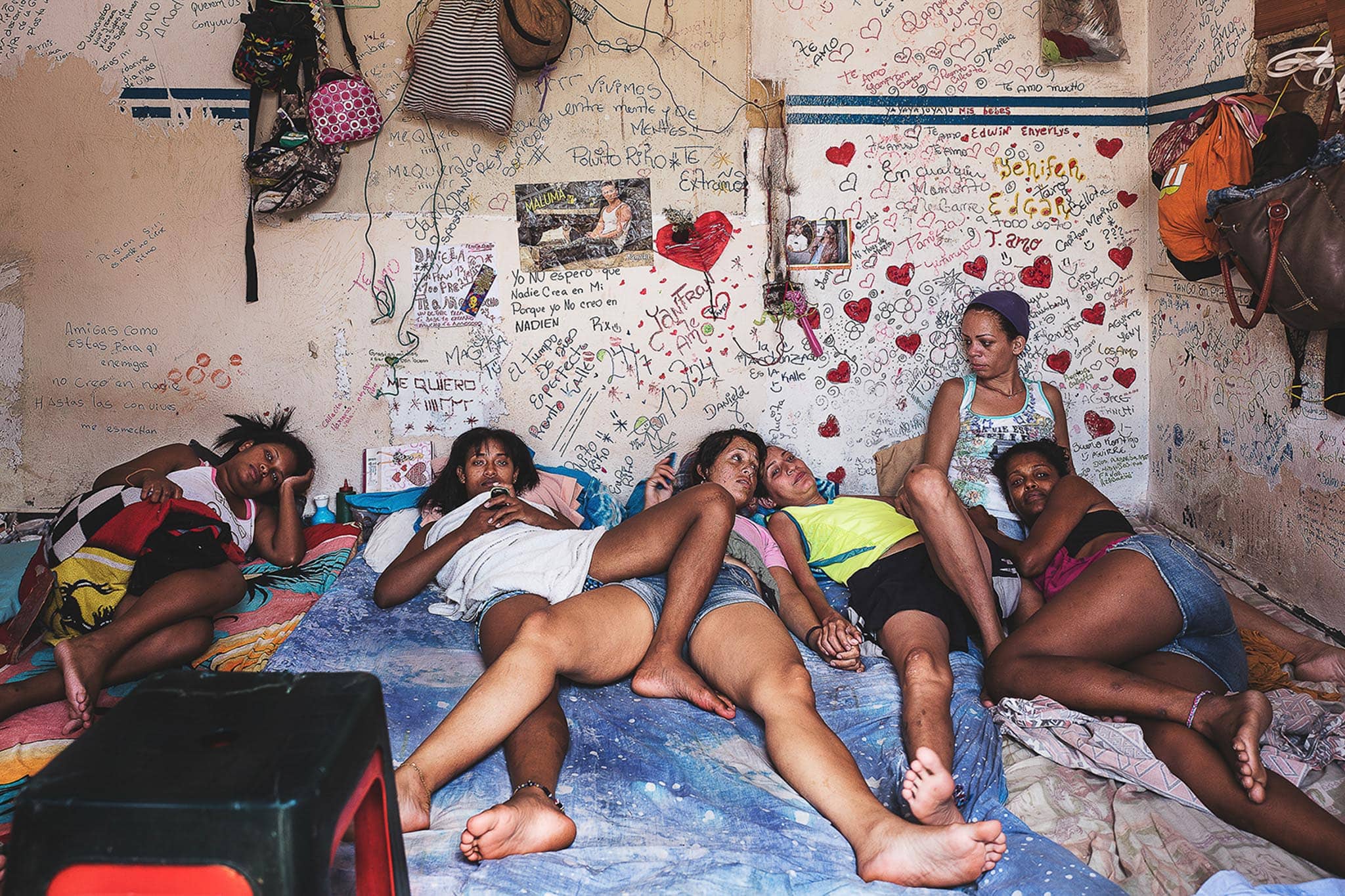
Ana María Arevalo Gosen
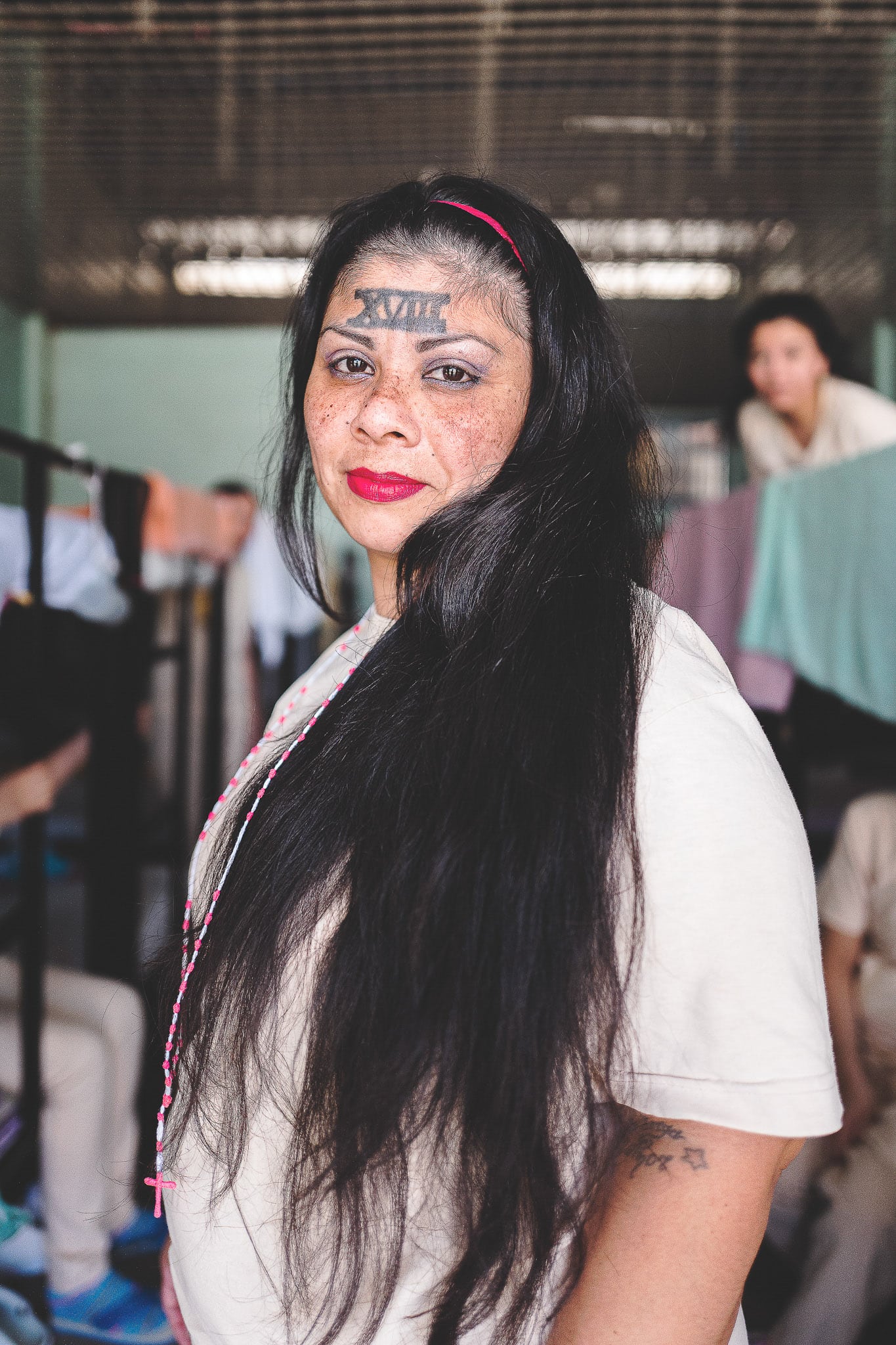
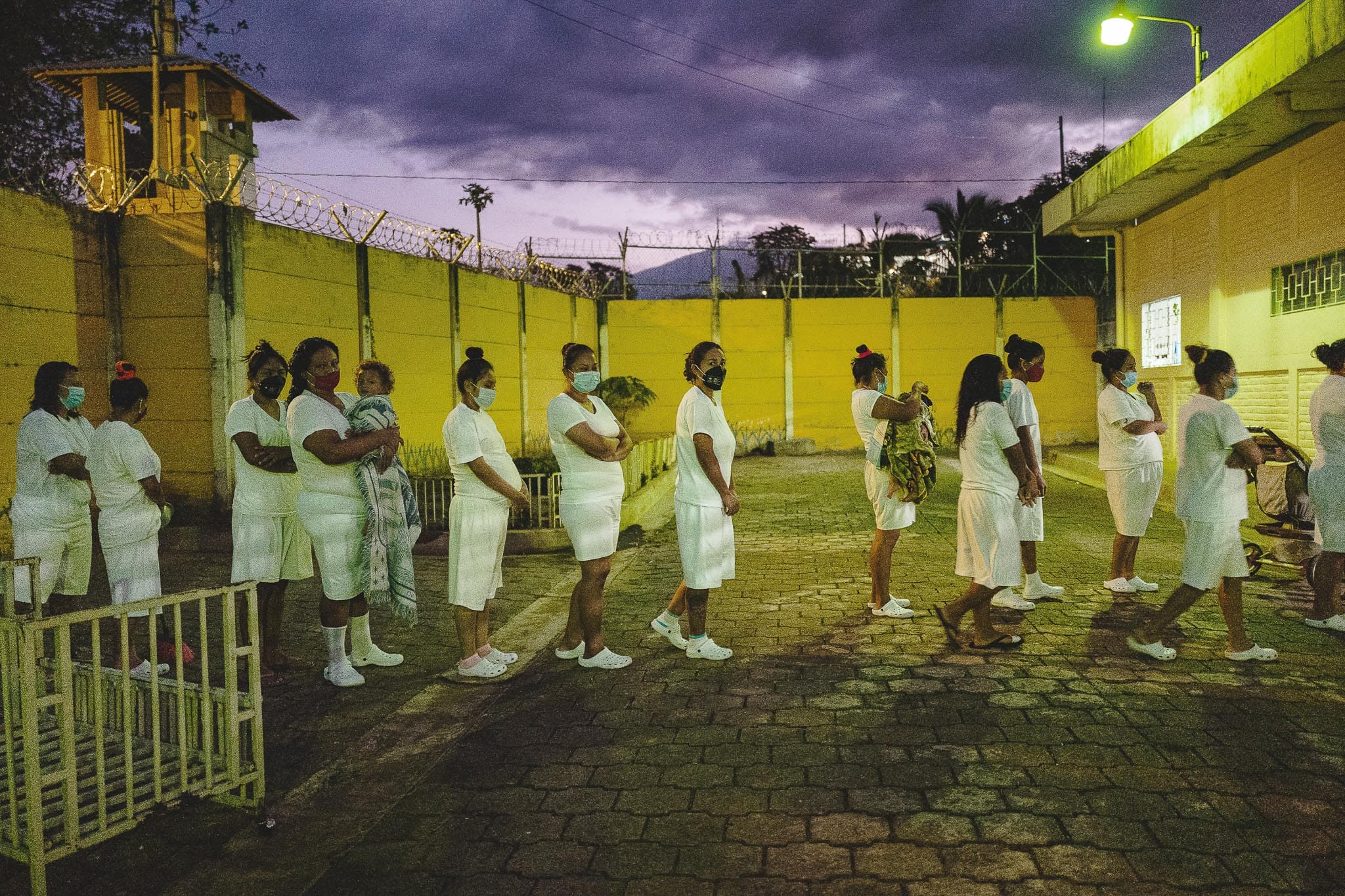
In El Salvador many of the women are detained for the criminalization of abortion, right?
There are even stories of miscarriages. For example, Alejandra: a woman who was 8 months pregnant loses her child and faints. She wakes up on a handcuffed stretcher. Besides her, two security guards tell her that she is in prison because she just killed her son. The sentence is aggravated murder, 30 years. She doesn’t understand anything, she says “this is not real”. They cure her and take her to a detention center. She watches her daughter grow up on visits. When she goes out, in the middle of a pandemic, her daughter dies. She couldn’t live with her daughter because she was in jail. Another story was that of a woman who becomes pregnant, they tell her that her child will not survive but she still had to grow her child in her belly and deliver the baby. The child did not survive, she did so as not to go to jail.
I also interviewed about fifteen women from the Mara Salvatrucha. Once they come out, do they have education programs? Do they have any help from the state? How do they get out of this cycle of violence? For many of them, the reality is that they return to gang life because they had no choice. They are women who suffered violence, who joined the gang and the gang is their family.
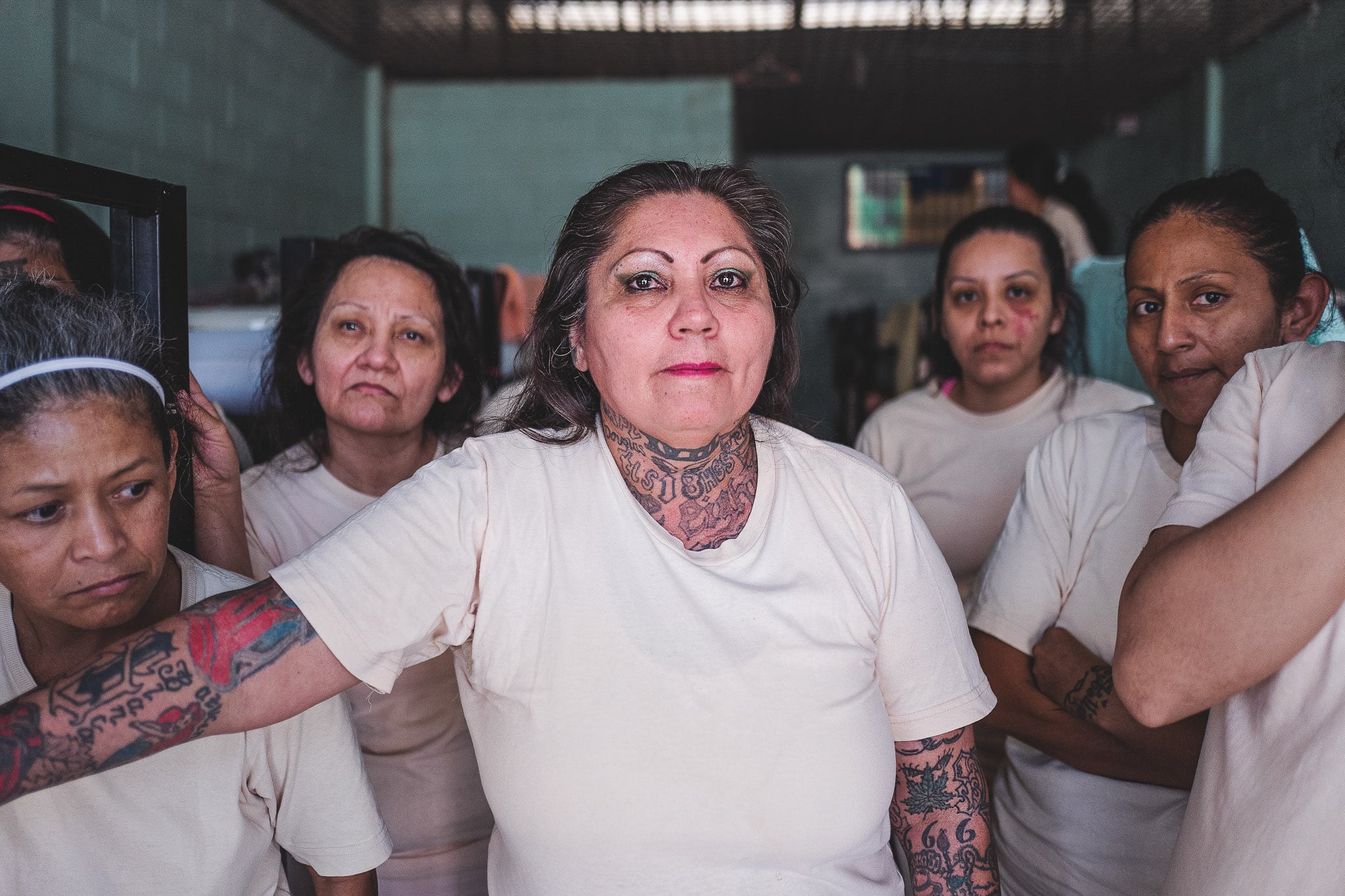
Ana María Arevalo Gosen
